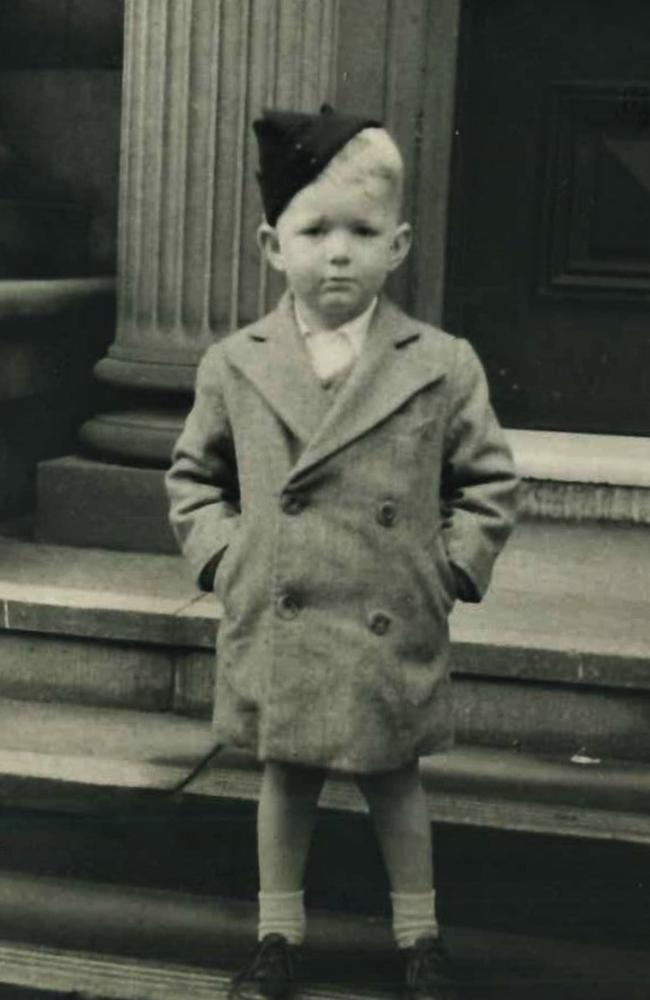Paul Hogan opens up on his journey to stardom and how fighting a Packer almost ended his career
Paul Hogan has revealed how his TV fame began and included a punch-up with one of the all-powerful Packers that almost ended his career.
Books & Magazines
Don't miss out on the headlines from Books & Magazines. Followed categories will be added to My News.
- Paul Hogan on luck and love
- Paul Hogan reveals he is desperate to leave Trump’s America
- Hogan wants a word about his new book
After years of being asked, Australian icon Paul Hogan has finally written his extraordinary life story. In this first exclusive edited extract from The Tap-Dancing Knife Thrower, the man who made the world laugh describes his first TV steps, the mate who made him a star and the physical dust-up with a Packer that almost ruined his career.
—
Mike Willesee was a bit younger than me, and had apparently captured 2 million viewers for his new show.
A Current Affair did a lot of serious stuff: politics, union disputes, feminism and the Vietnam War, where lots of young Australians were fighting.
“What we’ve been looking for is a working man who can give his opinion on particular items that turn up in the news,” Willesee said.
“We tried an actor or two, but it didn’t really work. You are obviously a working man, and obviously a little strange. Would you do that, you know, on your way home from work from time to time?”
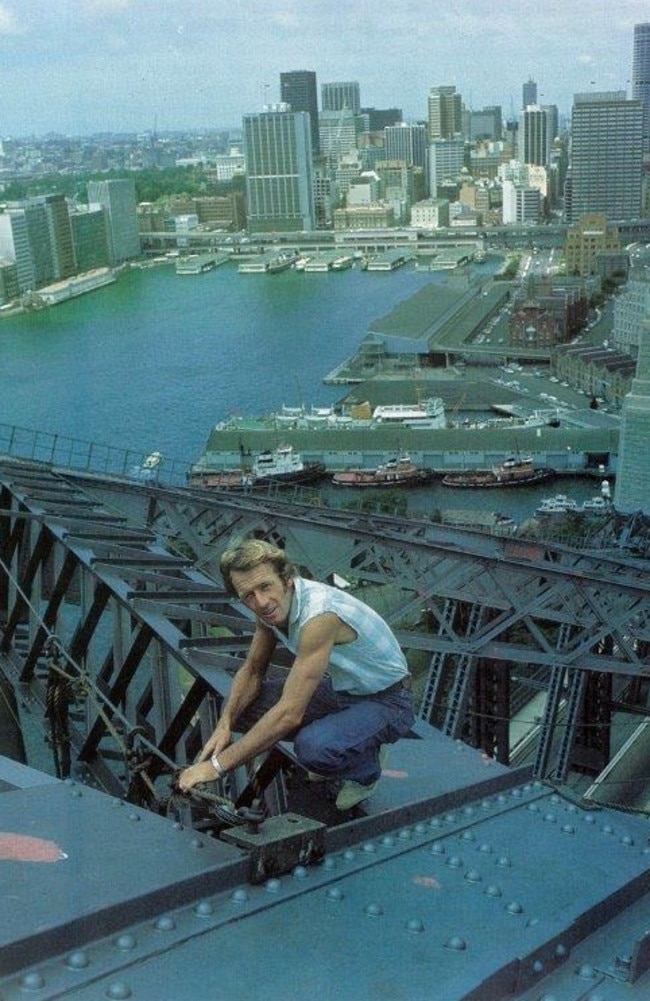
He said they could ring me at the Bridge during the day and give me a subject. It might be the Queen’s birthday or the price of beer, or some union problem or whatever. If they did that, could I stand in front of the camera after work and give an opinion?
“Oh, yeah, I’ve got opinions on everything,” I replied. And I did.
“I’ll gladly pay you,” he said. “It’ll be the equivalent of about a day’s pay.”
Bloody hell, I thought, that’s all right, and it’s only going to take me a few minutes. That’s how it started. I’d be at work on the Bridge and every now and then they’d ring me.
Nobody had mobile phones, so one of the boys would just sing out from below that Willesee had called, and the subject was blah blah blah.
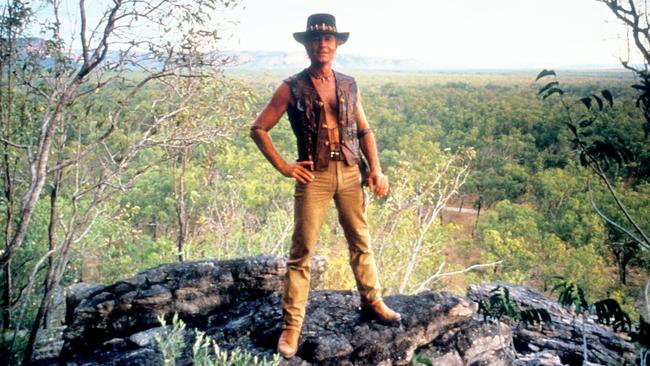
At the end of the day, they’d have a camera out in the yard at Channel 9’s Willoughby headquarters and I’d turn up in my work gear, often filthy dirty, look straight down the barrel of the lens, and give whatever galah opinion I had on that particular day.
It resonated with viewers because I was no different from most of those watching the show. I was just another joker from the real world. A punter. I knew what it was like to be struggling to pay the rent or to have five open bottles of milk in the fridge and exactly one pint of milk divided between them.
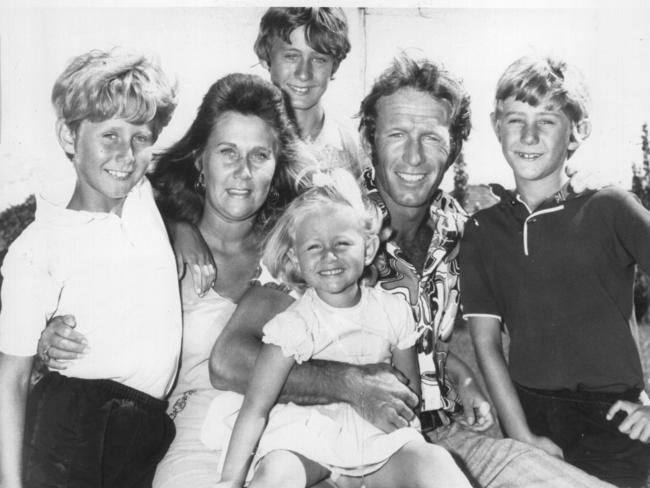
I was used to having wet nappies hung up around the house because it was raining outside, and having kids that ate like starving steel workers.
After I’d dispensed my words of wisdom, they’d give me $30, and off I’d go. It was only going to be an occasional thing, but it was a nice little top-up to my wage.
In fact, in those days, $30 wasn’t the equivalent of a day of my pay as Willesee had said it would be. It actually took me nearly two days to earn that much. So it was pretty cool.
The only person who wasn’t happy was Mum. ‘Why don’t you dress nice?’ she said. ‘Other people dress nice on television. You go on there in your torn shirt.’
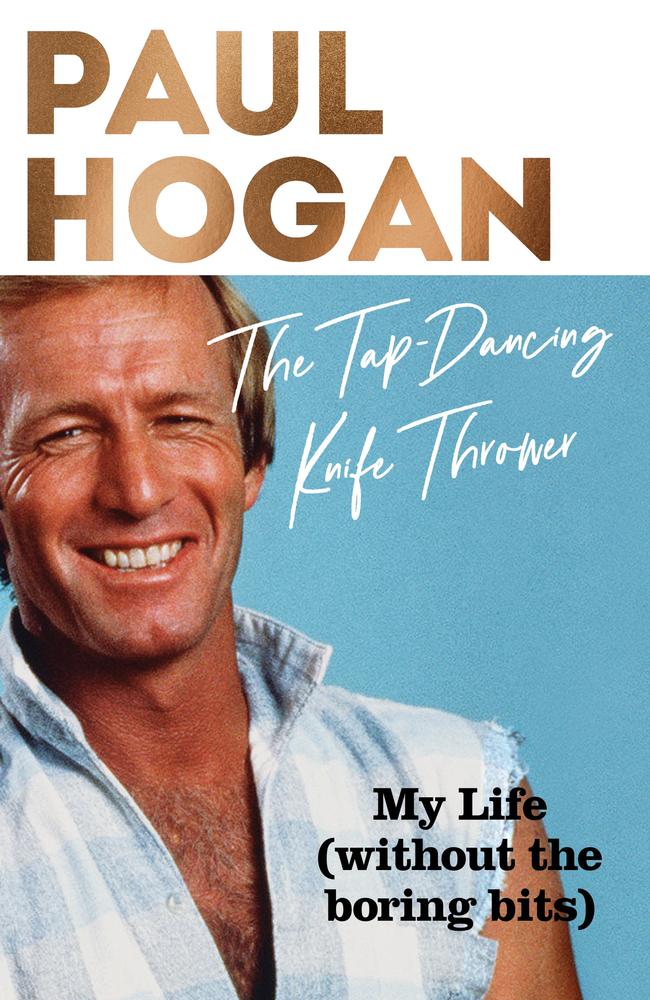
From December 1971 onwards I produced comedy spots for A Current Affair as a sideline to my main gig as a rigger. I was billed as ‘The Man on the Street’. With such a big ready-made audience, I quickly became popular.
I started to get a bit inventive. For one piece I decided that, rather than just having me talk to the camera, it would be better to have a conversation with someone else. That someone had to be like a friend of The Man on the Street, but not very bright.
That was important because I never came over as very bright, and I wanted someone who was even dumber so I could get this particular point over.
“Do you have any actors here?” I asked.
“No,’ Willesee said. “But one of the producers of the show, John, does this Marlon Brando impression. I think he got it from The Godfather.”
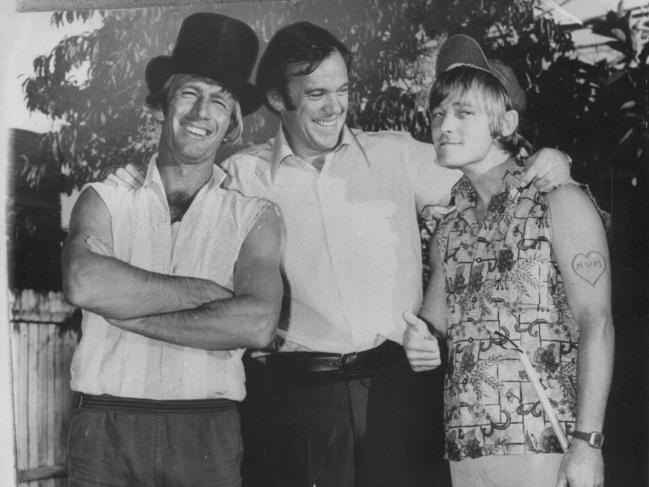
That producer was John Cornell. He was about twenty-eight and was a good-looking, dapper sort of guy, so it didn’t seem promising. He put a cap on and stuck his jaw out to distort his face, and started talking. ‘I don’t see Marlon Brando there,’ I said. Nevertheless, he had a good dopey way about him, so I said, ‘Yeah, he’ll do.’
We decided that his name would be Darryl, but everyone would call him Strop, or Stropper, because in Australian slang that meant a wanker. So from then on, whenever I’d do a little
piece that needed more than just me, I’d get John to put a hat on and help.
When I started, my gig on A Current Affair was supposed to be maybe once a fortnight. But then it was once a week, then twice a week or more – if they could get me to do it.
Within weeks I went from being a totally unknown, mind-your-own-business rigger to, well, kind of famous.
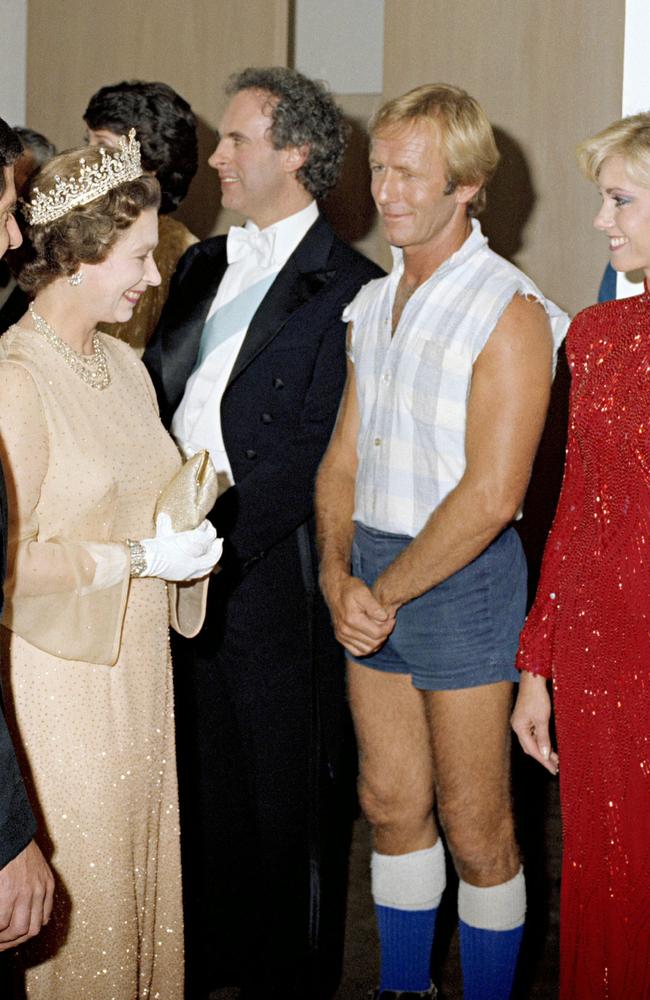
Being rich and famous might be pretty cool: you could come out of the theatre after a show, sign a few autographs, wave, then get in your limo and off you went. But poor and famous, wow, that really sucked.
I’d be on TV on Thursday night, then Friday morning on the train going to work with my audience – and my critics. There’d always be some prawn saying, ‘Hey, you’re Hoges, I saw you on TV last night. You know what you should’ve said …’
There was another problem too. People driving across the Bridge would be gazing up, looking for the joker off the telly and … bang! Happened more than once. Not a good thing.
So the Bridge people weren’t happy with it either. I remember looking down at the harbour and out to sea from my amazing vantage point on the Bridge and thinking, Yep. Enough. Time to give it away. The next day I rang Mike Willesee and said, ‘It’s all become too silly.
Sorry, but I’m not going to do your show any more.’
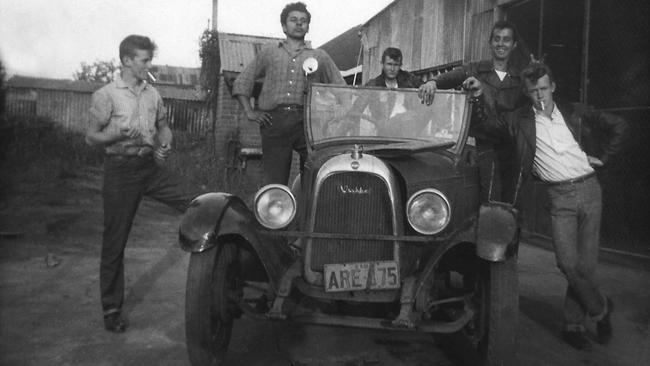
•••
The powers that be at Nine weren’t happy with me quitting.
John Cornell, who was still a producer and my occasional sidekick, explained to me one day that while my segment might not be very important to me, it was becoming increasingly important to them, because whenever I was on, the ratings went up.
“Look, just answer me a couple of questions,” he said. “Everything you do here, it just comes off the top of your head?”
“Yeah,” I said.
“Do you think everything in the world’s funny?”
“No. Just the people.”
John smiled and started to nod. ‘You should have your own show.’
I just laughed. “I’d have no idea how to do that.”
But he was insistent. He said, “We can work it out. You and me, between us, we can do it! It’ll be fun.”
I thought it was a mad suggestion. But this bloke’s enthusiasm and faith in me, and the lure of my own show somewhere down the track, were enough to convince me to stay on at A Current Affair. I gave my notice at the Bridge.
If it wasn’t for John Cornell and that chat, I would probably have spent the rest of my life up there.
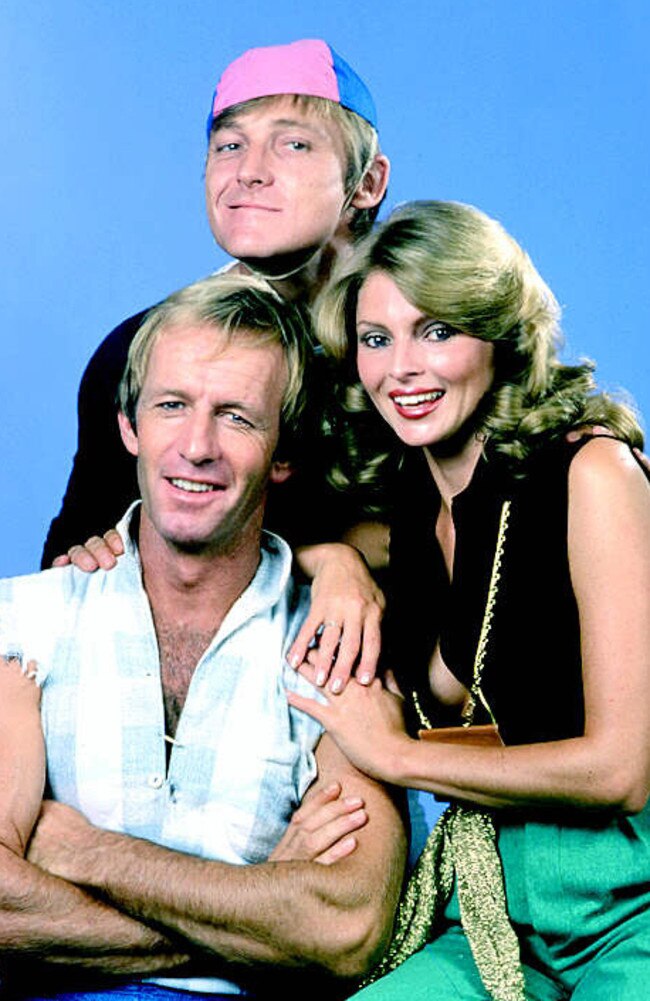
***
Our TV idea was pretty simple: a travel show in which ‘Hoges’ would travel to other countries and do his thing.
Channel 9 agreed to put up the money, with the idea that John would produce and we’d go on the road, first to Singapore. I’d be meeting the locals, learning new customs and habits and generally making good-humoured fun of the experience.
Looking back, that Singapore show probably wasn’t great, but it rated very well and Nine agreed to another. We made a much better fist of our second effort, Hogan in London.
It was my first trip to my ancestors’ old country and I quickly realised that the great city of London was ripe for the taking by two wise-cracking Aussies.
We had an absolute ball. Warren Mitchell did a bit for us as Alf Garnett and was very funny. We even had Germaine Greer come along and do a sketch as Strop’s sister. There she was, the ultimate intellectual feminist with her jaw stuck out, dressing down Strop like a big sister: “I’m sorry Darryl, I’m going to have to tell Mum.”
Something even funnier: afterwards, John and I went to this large, posh restaurant in Soho with Germaine and a lot of pretentious people.
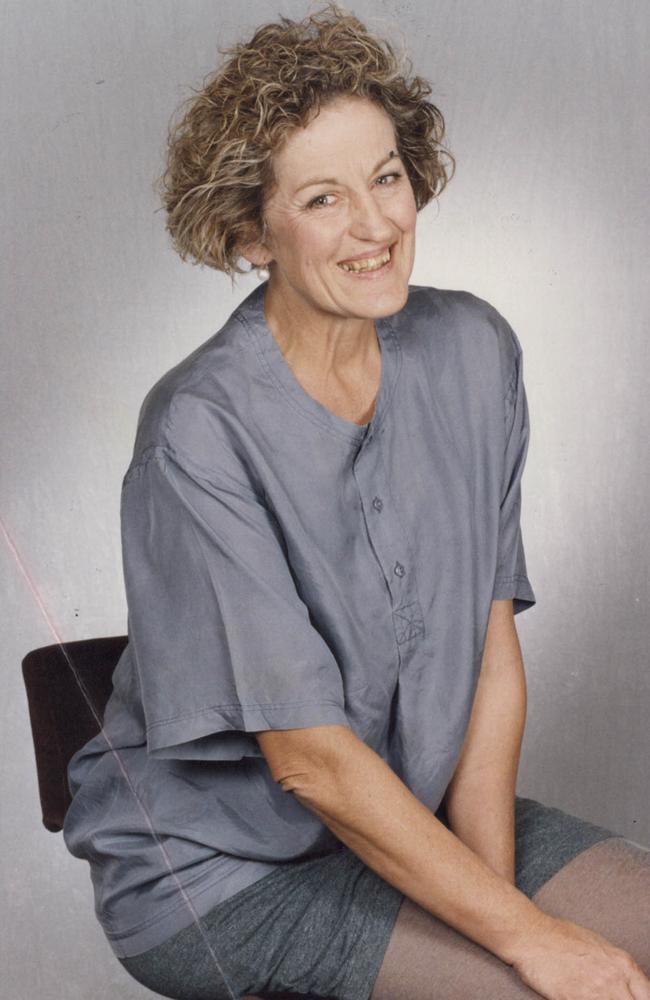
There was this rather annoying Irish poet sitting opposite me. He’d had a skinful and he was spouting away, making disparaging remarks about Australians. This got right up my nose. I said, ‘What did you just say then, dickhead?’
He started to reply but before he got a whole sentence out, Germaine, who was sitting next to him, just went whack and backhanded him clean off his seat and down onto the floor.
“I just saved you from a vicious beating,’ she said. ‘So just shut your mouth and get back on your chair.”
“Ah, okay,” he meekly replied. And he bloody well did. He didn’t move and hardly spoke for the rest of the night.
On another night, we all went into this popular Aussie pub in London. When we were leaving, a lot of Australians were watching me and Germaine.
So as we were walking away down the street I put my arm around her and immediately she put her hand on my bum – knowing we were being watched.
She was great, a real stirrer with a wicked sense of humour. I love Germaine.
So now we’d made two travel shows, but in between them, there’d been an almighty ruckus. After Singapore was screened, Clyde Packer summoned us to a meeting.
Now the Packers not only owned the Nine Network but also newspapers and magazines and were among the richest people in Australia.
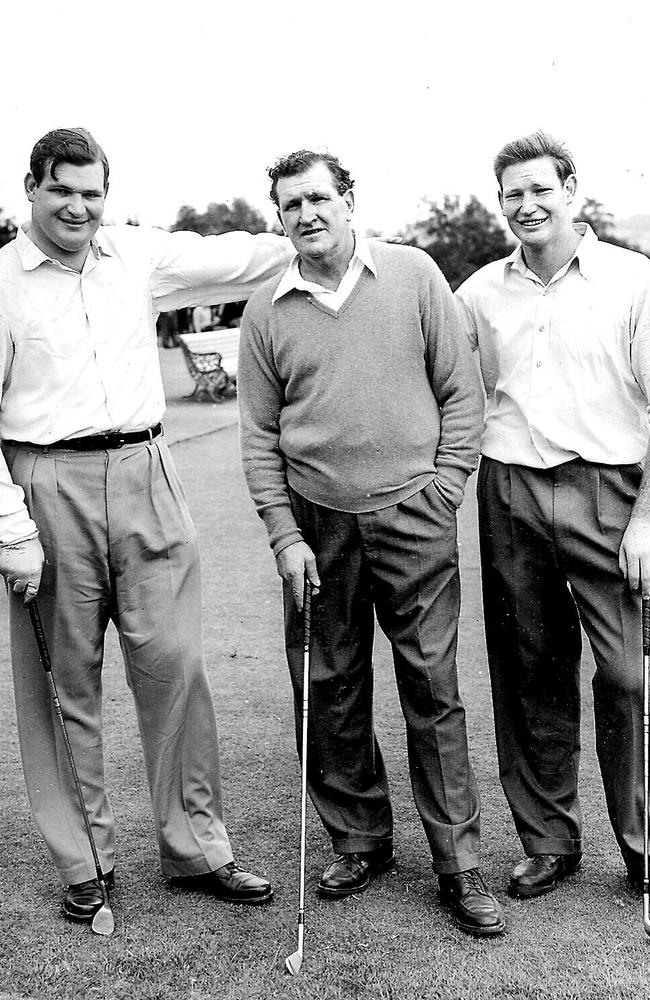
The patriarch, Sir Frank Packer, had handed control of the family business to Clyde in 1970, having decided that he, the eldest son, was smarter than his brother, Kerry. So although he was fairly new to the job, Clyde was running the Packer empire and the Nine Network. And he was a really big man, probably weighed three hundred pounds in the old money. That’s over 135 kilograms. And Clyde used to wear kaftans. It was the 1970s and a lot of big fat guys wore kaftans.
Anyway, we turned up at Clyde’s office and had only just walked in the door when he started ranting about how our latest show was over budget. He started accusing John of being either an incompetent producer or of pocketing some of the production money.
John most certainly wasn’t guilty on either front.
Big Clyde then started poking his finger, trying to make his point. And I was just watching this argument between Clyde John get hotter and hotter. They were standing very close, face to face in fact, and Clyde’s poking finger was getting closer and closer to John.
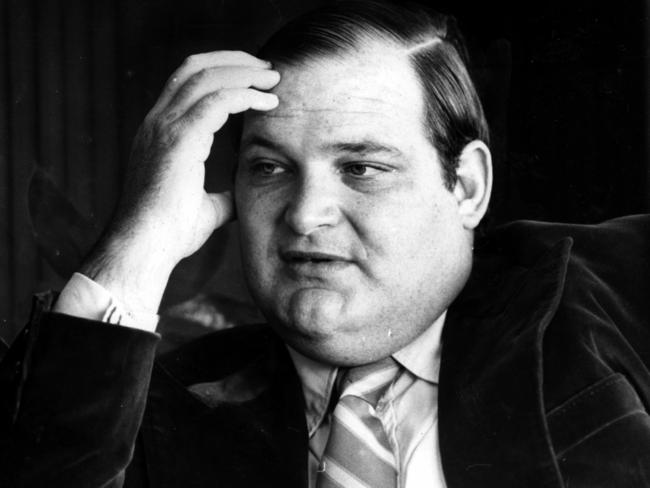
By now, I knew John well enough to realise this wasn’t good, and I thought, Any minute now that finger’s going to land and this is going to end up in an almighty blue. The thing too was that although John had boxed as a teenager (thirteen wins, two losses), he was a bantamweight, whereas Clyde was like André the Giant. I thought, I can’t let this happen.
My John Wayne gene kicked in and I rushed in real close to Clyde, thinking to myself, I’m just getting started in my new career on television and here I am about to thump the guy that owns the whole network. But it was unavoidable. Or so I thought.
Before I could throw a punch, John grabbed Clyde by the shirt front and dragged him right across the room and shoved him hard against the wall.
It was the bantamweight against the super-heavyweight champion, but the bantamweight was going for it! Clyde, a rich powerful magnate, wasn’t used to anyone manhandling him and didn’t know what to do.
“That’s an effing lie, take it back,” John said.
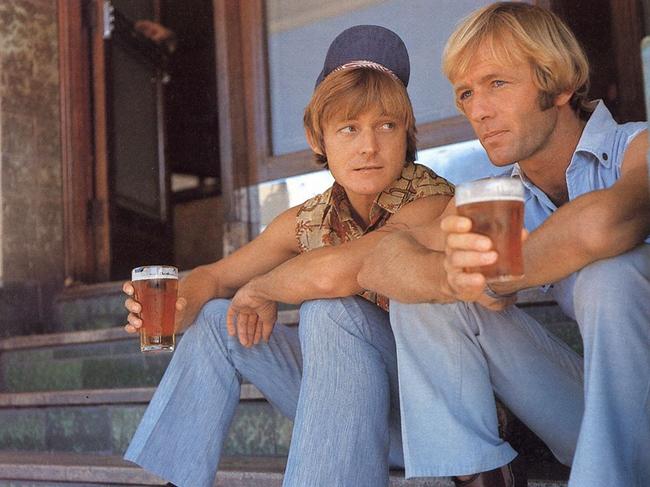
Clyde sort of mumbled an apology.
“Louder! I didn’t hear you!” said John. By now Clyde was starting to slide down the wall with John still holding his shirt front. Instead of thumping Clyde, I had to restrain John! I pulled him off, and we left the office.
From then on, somewhat unsurprisingly, John was wiped. Clyde and Mike Willesee told me that I was still welcome at Channel 9, but not John. I probably surprised them a little because I said, “Nah, if John leaves, I’m going with him.”
They told me I was mad. They told me it’d be the end of my career. But John had always stuck up for me, and staying loyal to him was worth more than any promised new contract from the Packers and Nine.
NO BORING BITS
+ Dive into the tales behind The Paul Hogan Show, Crocodile Dundee and more at new podcast Evenin’ Viewers With Paul Hogan, hosted by Frances Whiting — latest episode out today, wherever you get your podcasts.
+ Paul Hogan’s The Tap-Dancing Knife Thrower: My Life Without The Boring Bits, published by HarperCollins Australia, is out on October 29.
Pre-order your copy at Booktopia — enter code HOGAN at checkout for a 30 per cent discount off the RRP of $45.00.
